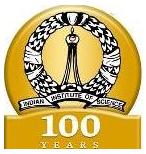Organizer: Centre for infrastructure, Sustainable Transportation and Urban Planning (CiSTUP) Indian Institute of Science
Venue: Centre for infrastructure, Sustainable Transportation and Urban Planning (CiSTUP) - SID Seminar Hall
Description:
Indian cities are facing a severe water crisis: rapidly growing population, low tariffs, high leakage rates, inadequate reservoir storage, are straining water supply systems, resulting in unreliable, intermittent piped supply. Conventional approaches to studying the problem of urban water supply have typically considered only centralized piped supply by the water utility. Specifically, they have tended to overlook decentralized actions by consumers such as groundwater extraction via private wells and aquifer recharge by rainwater harvesting. An innovative integrative framework is formulated for analyzing urban water supply in Indian cities. The framework is used in a systems model of water supply in the city of Chennai, India that integrates different components of the urban water system: water flows into the reservoir system, diversion and distribution by the public water utility, groundwater flow in the urban aquifer, informal water markets and consumer behavior. Historical system behavior from 2002-2006 is used to calibrate the model. The historical system behavior highlights the buffering role of the urban aquifer; storing water in periods of surplus for extraction by consumers via private wells. The model results show that in Chennai, distribution pipeline leaks result in the transfer of water from the inadequate reservoir system to the urban aquifer. The systems approach also made it possible to evaluate a wide range of centralized and decentralized policies.
Three very different policies: Supply Augmentation (desalination), Efficiency improvement (raising tariffs and fixing pipe leaks), and Rainwater Harvesting (recharging the urban aquifer by capturing rooftop and yard runoff) were evaluated using the model. The model results suggest that a combination of Rainwater Harvesting and Efficiency Improvement best meets our criteria of efficiency, equity, system reliability, and utility profitability. Importantly, the combination policy emerges as optimal because of three characteristic conditions that are prevalent in Chennai:
- Widespread presence of private wells,
- Inadequate availability of reservoir storage to the utility
- High cost of new supply sources.
About Speaker: Veena’s research interests are inter-sectoral water allocation, and impacts of urbanization on water resources and water resources sustainability and vulnerability. Veena joined the Interdisciplinary Program in Environment and Resources as part of the first cohort of students in 2002. Her dissertation research site is the rapidly growing but water-starved city of Chennai in South India. The research examined the causal factors and policy implications of a recent water crisis using a hydrologic-economic systems model. Veena is currently a post-doc with the Environmental Earth System Science department. Her current research involves using Qualitative Comparison Analysis techniques to review the case studies of water and sustainability across the world. The goal of this analysis is to develop a conceptual framework for a global program on water and sustainability at Stanford.
Contact Details:
Centre for infrastructure, Sustainable Transportation and Urban Planning (CiSTUP),
Indian Institute of Science,
Bangalore 560012
Telephone: +91-80-23600757
Email: regr@admin.iisc.ernet.in
Website: www.iisc.ernet.in/
/events/integrated-framework-analysis-water-supply-developing-world-city-cistup-bangalore
